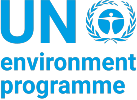The waste sector is assumed to be gender-neutral, but gender inequalities
and norms are embedded in almost every aspect of waste management.
What is Gender and Waste Management?
We see a division of labor in the waste sector based on conventional gender roles and stereotypes. Traditional gender roles dictate tasks: men could assume higher roles
like recycling management, while women often handle menial jobs like waste picking,
sweeping, and waste separation. Women are often excluded from higher-income
and decision-making positions. When waste management formalizes, women are often marginalized and replaced by men, contrasting their active roles in informal settings.
Mainstreaming gender in the waste sector and strengthening the participation of women in the waste sector can lead to more efficient and effective waste management operations. As the primary users of waste management services at the household level and being engaged with various types of work in the waste sector, women have both knowledge and expertise. Women are vital agents of change in moving towards more efficient, sustainable and fair waste management. It is also important to bring men and boys, as well as women and girls, into the conversation, as gender is not just about women.
IETC’s work on Gender and Waste
IETC has developed various publications and materials on the nexus between gender and waste management over the years. To disseminate the GENDER AND WASTE NEXUS video series to a wider audience, IETC launched new versions with local languages spoken in Bhutan, Mongolia, Nepal and Japan in 2021. In this video series, women and men with a wide range of backgrounds, such as farmers, national and local government officials, and non-governmental organizations (NGOs) founders and workers, share their thoughts on how to mainstream gender within waste management. They also share the challenges women often face in waste management and their personal stories on how they are addressing gender issues.
Given the limited availability of gender materials that are focused on particular waste streams, IETC also developed gender mainstreaming materials specifically on plastic waste and e-waste.
Report

Factsheet
- Gender and waste management: Did you know… (2022)
- Gender and medical waste in the time of COVID-19 (2022)
- The role and experience of women in plastic waste management (2022)
- The role and experience of women in e-waste management (2022)
- Recommendations to improve women’s participation and experience in plastic and e-waste management (2022)
- Gender responsive programs: From inclusion to transformation – Guidance on how to mainstream gender in e-waste and plastic waste (2022)

Videos
- Gender and waste nexus: Experiences from Bhutan, Mongolia and Nepal – Story Video (2019)
- Gender and waste nexus series
- Introduction video (2021) (English/Japanese)
- Video 1: Experiences from Bhutan, Mongolia and Nepal (2020) (English, Dzongkha, Mongolian, Nepali, and Japanese)
- Video 2: Gendered states of waste management (2020) (English, Dzongkha, Mongolian, Nepali, and Japanese)
- Video 3: Household’s role in waste management (2020) (English, Dzongkha, Mongolian, Nepali, and Japanese)
- Video 4: Towards gender-responsive policies on waste management (2020) (English, Dzongkha, Mongolian, Nepali, and Japanese)
- Video 5: Empowering women in the waste sector (2020) (English, Dzongkha, Mongolian, Nepali, and Japanese)
Stories
- Voices of women working in waste: a story from Bhutan (2019)
- When waste works for women (2019)
- Why gender dynamics matter in waste management (2022) (English, Japanese)
Webinars






